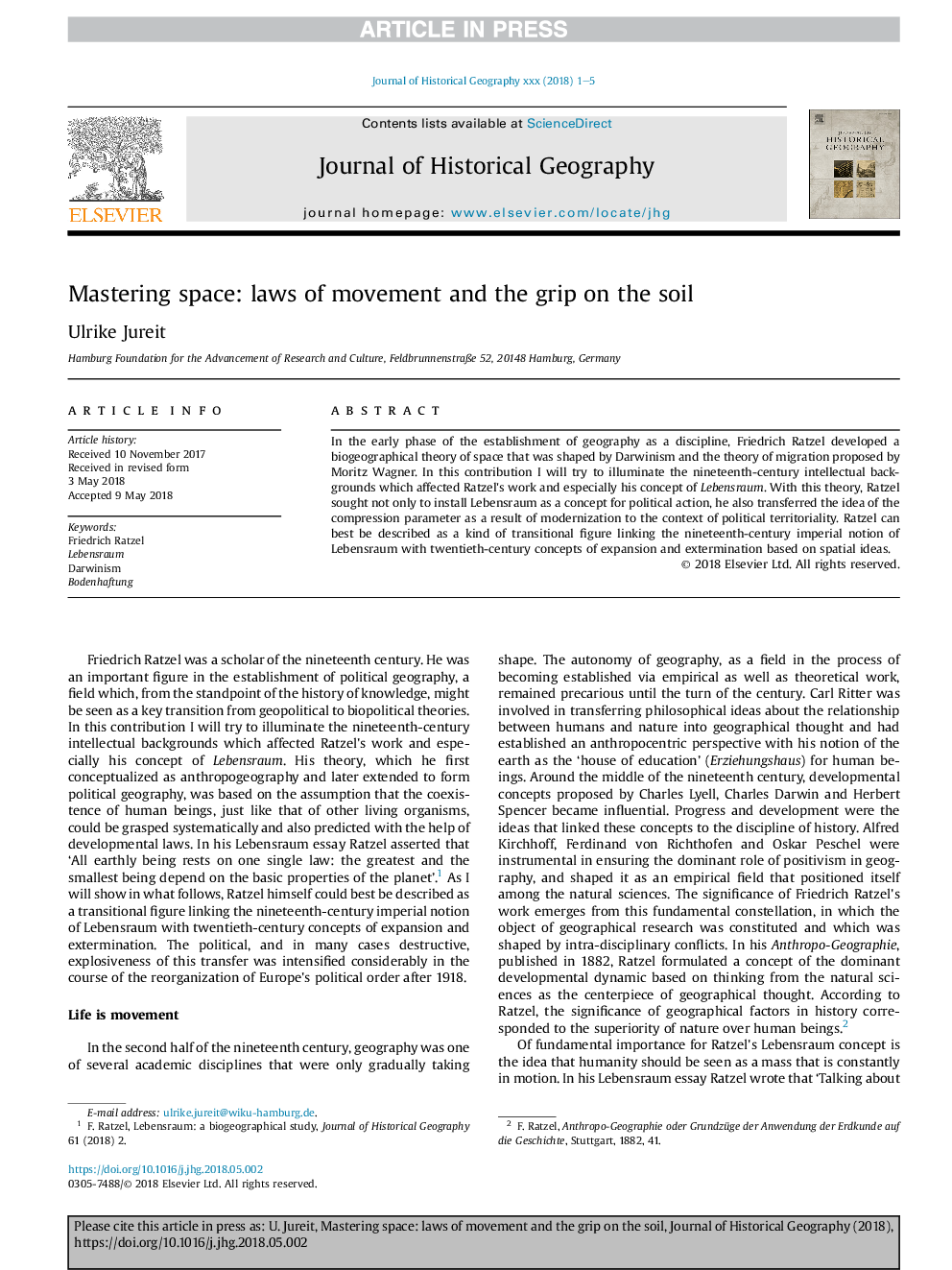| Article ID | Journal | Published Year | Pages | File Type |
|---|---|---|---|---|
| 9953190 | Journal of Historical Geography | 2018 | 5 Pages |
Abstract
In the early phase of the establishment of geography as a discipline, Friedrich Ratzel developed a biogeographical theory of space that was shaped by Darwinism and the theory of migration proposed by Moritz Wagner. In this contribution I will try to illuminate the nineteenth-century intellectual backgrounds which affected Ratzel's work and especially his concept of Lebensraum. With this theory, Ratzel sought not only to install Lebensraum as a concept for political action, he also transferred the idea of the compression parameter as a result of modernization to the context of political territoriality. Ratzel can best be described as a kind of transitional figure linking the nineteenth-century imperial notion of Lebensraum with twentieth-century concepts of expansion and extermination based on spatial ideas.
Keywords
Related Topics
Social Sciences and Humanities
Arts and Humanities
History
Authors
Ulrike Jureit,
